My father, Tom, and I traveled to the village where my father and
grandmother were born. My father originally wanted to take a boat
upstream and then walk to the village. However, that boat service had
been discountinued for many years and only existed in my father's mind.
We began the trip in Guangzhou at 7 in the morning and took an old bus to
Toi San city. The ride took between two to three hours. This city seems
to be quite wealthy, and of two reasons I can think of. It is close to
Guangzhou, which is supposedly one of the most modern and richest cities.
Another reason is because of the money that Chinese emigrants continue to
send back. Many people who immigrated to such countries like America are
from Toi San so they still send money overseas to relatives. Anyway,
after a brief walk around, we took a "farmer" bus to get to a nearby
village. We got house keys from our father's cousin and proceeded to my
father's village.
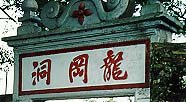
The name of our village in Toi San.
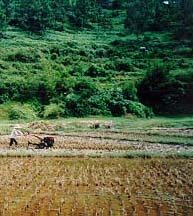
Just by walking towards the village and looking around, you can see
many people hard at work, tilting the land.
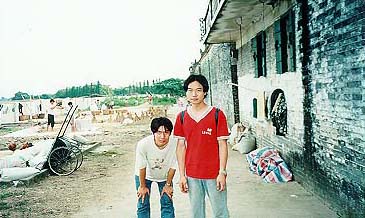
People are drying rice under the sun on the pavement. They do this in
front of the houses.

This river is right next to the village. Villagers use it as a
means of transportation

The houses are aligned like in rows. This is the space between
houses.
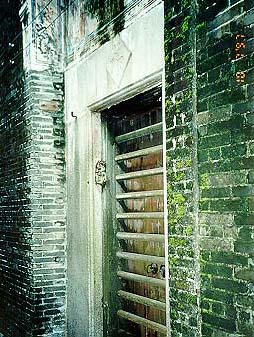
Hey, that's our house! No one has lived in it for at least forty
years. My grandmother lived here for half her life and my father
lived here for his childhood. The door has been locked for years with
those wooden poles

Without repairs being made, the sky is clearly visible inside the
house. What a skyroof!

This side is directly opposite from the previous picture. The house
has an upstairs. The wood carving is really good, even after all these
years. That is also a place to pray. There is still some junk upstairs.
I believe that that acts as an attic. Downstairs is completely empty,
as things were moved out long ago.
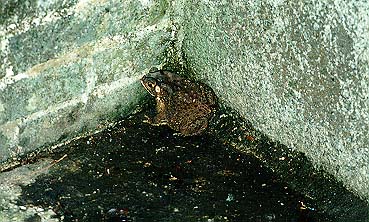
Well, at least someone, or something is still living here!
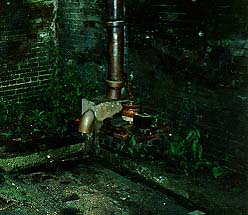
That's a pipe! Running water?
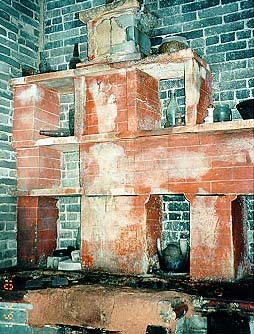
A stove with empty shelves. Farmers keep the ricestems even after
removing the rice. They dry it so that they could eventually burn
it in the stove as fuel.

People raise ox to do all sorts of work, including plowing the land.
People do not use tractors or such equipment. Everything is pretty much
low-tech.

That's a road leading away from a village, back to the main road where
we originally took the "farmer" bus.
It was early evening by the time we arrived at the main road. Walking
back took at least an hour, but it was very enjoyable because of the view.
Bus service had already end and we were pondering about how to get to the
nearest town. A motorcycle taxi driver came to us offering his service.
We agreed and he called two of his fellow motorcycle taxi driver buddies.
Each of us rode on the back of a motorcycle, wearing a helmet. It was fun
and well worth the 50 Rmb($6US). We took another bus, a "farmer" bus,
back to Guangzhou but it was VERY indirect because it kept on picking
up and dropping passengers along the way. Also, the path was not
straight to Guangzhou, but sort of like a loop. By the time we
arrived back to where we were staying, it was midnight.
Visiting the village is perhaps one of the most strangest days of my life
because it has a large impact upon me, more than anywhere else in China.
Having lived in America and in the cities for most of my life, I feel very
different from these villagers. They toil with soil from sunrise to
sunset every day. Their lifestyles are just so much different; they are
so much poorer than I. I feel uncomfortable being around them because of
this, ashamed of living a much more easy life than them. I can not
imagine taking a place among them, to live the lives that they do.
FINISHED












